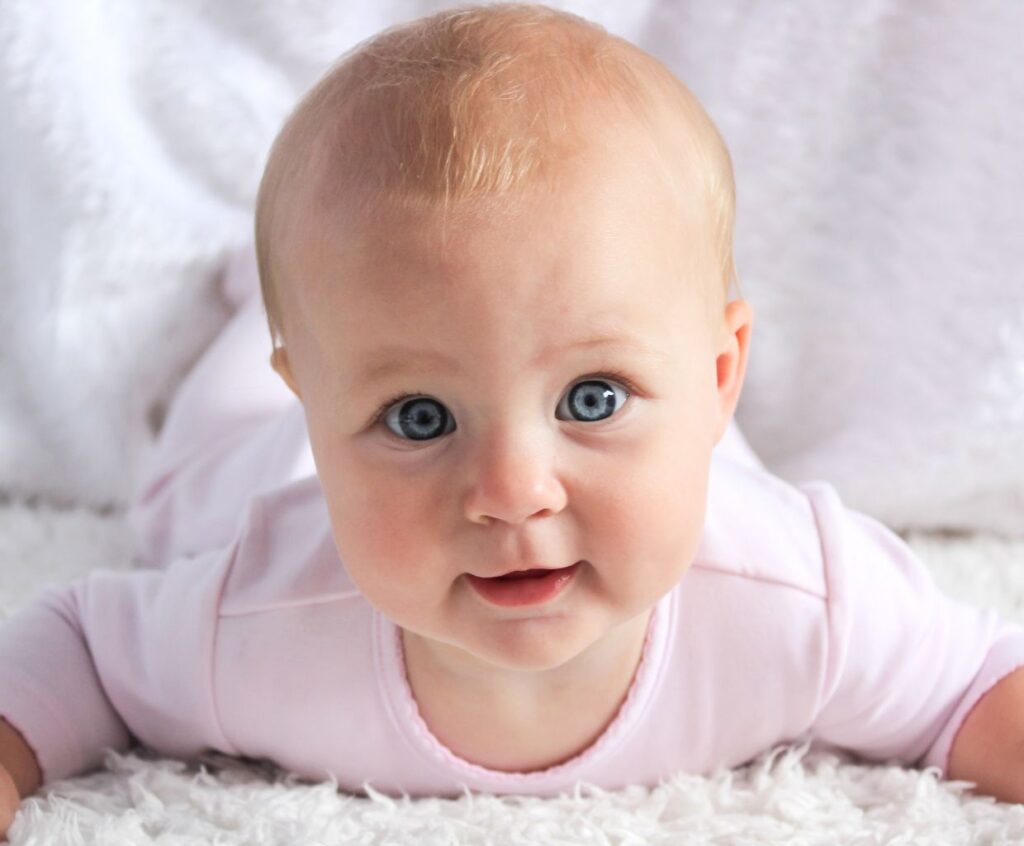Baby Milestones: When Do Babies Start Rolling Over?
Welcome to the beautiful journey of parenthood! As a new parent, it’s natural to be curious about your baby’s development and eagerly anticipate each milestone. One of the exciting moments in a baby’s growth is when they start rolling over.
It’s a significant milestone that showcases their increasing strength, coordination, and mobility.
What is Rolling Over?
Rolling over refers to a baby transitioning from lying on their back or tummy to turning onto their side or completely flipping onto their stomach or back. It’s usually a gradual process that takes time and practice for your little one to master.
When Does Rolling Over Typically Begin?
Every baby is unique, and their development timeline can vary. However, most babies start rolling over between 3 and 6 months. It’s important to remember that these are just general guidelines, and some babies may achieve this milestone earlier or later – both scenarios are perfectly normal.
Signs that Your Baby is Ready to Roll Over
-
- Increased neck strength: Before rolling over, babies need to develop sufficient neck and upper body strength to support themselves.
-
- Improved head control: You’ll notice your baby gaining better control of their head movements, which is crucial for rolling over.
-
- Increased leg and arm movements: Your little one’s kicking and reaching will become more purposeful as they prepare for rolling over.
-
- Attempts to lift themselves: Your baby may start pushing up with their arms while lying on their tummy, indicating they’re preparing to roll over.
How to Encourage Rolling Over
While you can’t force your baby to roll over, you can create an environment that supports their development. Here are a few tips to encourage rolling over:
-
- Tummy time: Regular tummy time sessions help strengthen the muscles needed for rolling over. Make it enjoyable by placing colorful toys or a mirror before your baby.
- Play and interact: Engage in activities encouraging reaching, grabbing, and kicking. This helps your baby build the necessary coordination and motor skills.
- Provide a safe space: Clear the floor of hazards and ensure a soft surface for your baby to practice rolling over without any potential harm.
What if My Baby is Not Rolling Over?
Don’t worry if your baby hasn’t started rolling over yet. Remember, each child progresses at their own pace. If your baby hasn’t shown signs of rolling over in 7sevenmonths, it might be a good idea to consult your pediatrician.
However, in most cases, your little one will reach this milestone quickly.
When do babies start crawling?
Babies typically start crawling between the ages of 6 and 10 months. However, it is essential to remember that every baby develops at their own pace, so some may start crawling earlier or later than others.
Developmental milestones for infants
Developmental milestones for infants are essential markers for their growth and progress. These milestones indicate the typical age range by which most children achieve specific skills and abilities. Here are some examples of developmental milestones for infants:
1. Motor Skills:
- Lifting and turning their head: By 1-2 months
- Rolling over: By 4-6 months
- Sitting without support: By 6-8 months
- Crawling: By 6-10 months
- Pulling themselves up to stand: By 9-12 months
- Walking with support: By 9-12 months
- Walking independently: By 12-15 months
2. Cognitive Skills:
- Recognizing familiar faces: By 2-3 months
- Following objects with their eyes: By 2-3 months
- Exploring objects with their hands and mouth: By 4-6 months
- Responding to their name: By 6-9 months
- Understanding simple instructions: By 10-12 months
3. Communication Skills:
- Smiling and cooing: By 2-3 months
- Babbling and making vowel sounds: By 4-6 months
- Responding to their name: By 6-9 months
- Gesturing or pointing to objects: By 9-12 months
- Saying simple words like “mama” or “dada”: By 10-14 months
4. Social and Emotional Skills:
- Engaging in social smiling: By 2-3 months
- Recognizing familiar faces and showing preference for primary caregivers: By 4-6 months
- Stranger anxiety: By 6-9 months
- Showing affection and playing interactive games: By 9-12 months
It is important to note that every child develops at their own pace; these milestones are just general guidelines. If you have concerns about your child’s development, consulting with a pediatrician or healthcare professional is always best.
Signs of delayed motor development in babies
Babies develop at different rates, but sure signs may indicate delayed motor development. It is important to note that each baby is unique and may reach milestones at their own pace. However, if you notice any of the following signs, it may be worth discussing your concerns with a healthcare professional:
1. Lack of head control: By around 3-4 months, most babies can hold their heads up steadily when placed on their stomachs. If your baby is still unable to do so at this age, it may indicate delayed motor development.
2. Not reaching for objects: By around six months, babies typically start reaching for and grasping objects. If your baby is not interested in reaching for objects or has difficulty holding onto them, it could be a sign of delayed motor development.
3. Not rolling over: By around 6-7 months, babies usually start rolling over from their stomach to their back and vice versa. If your baby cannot roll over by this age or is struggling with it, it may be a cause for concern.
4. Not sitting without support: By around 8-9 months, most babies can sit without support. If your baby cannot sit unsupported or needs constant support to stay seated, it could indicate delayed motor development.
5. Not crawling or scooting: By around 9-10 months, babies typically start crawling or scooting on their stomachs or bottom. If your baby is not showing any signs of mobility or is not attempting to move in any way, it may be a sign of delayed motor development.
6. Not pulling up to stand: By around 10-12 months, babies usually start pulling themselves up to a standing position using furniture or other objects for support. If your baby is not attempting to pull up or is struggling with it, it may indicate delayed motor development.
7. Not walking: By around 12-15 months, most babies take their first steps and start walking independently. If your baby is not showing any signs of walking or is significantly behind in this milestone, it could be a sign of delayed motor development.
Remember that every baby develops at their own pace, and it is important not to compare your baby to others. However, it is always best to consult a healthcare professional for proper evaluation and guidance if you have concerns about your baby’s motor development.
When Do Babies Start Rolling Over? – Conclusion
Rolling over is an exciting achievement for both babies and parents. It signifies their growth, independence, and a new chapter of exploration.
Enjoy this milestone with your little one and celebrate their progress!


